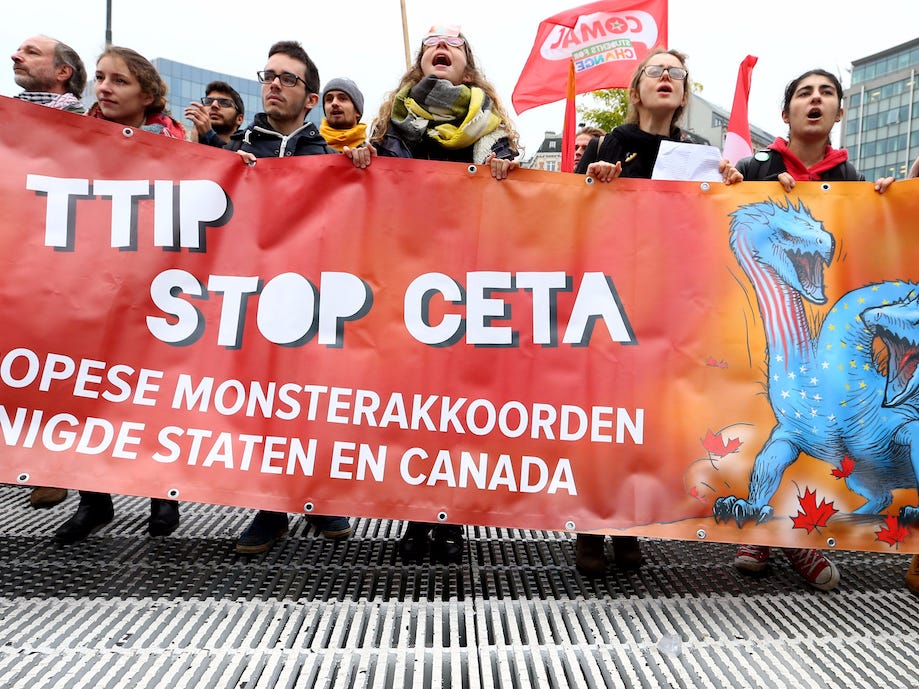Dutch politicians divided on free trade agreement with Canada
Talk Finance | 12 February 2020
Dutch politicians divided on free trade agreement with Canada
For seven years, the European Union has negotiated with Canada on a new, extensive trade agreement. The parties reached an agreement in 2017. The CETA, the Comprehensive Economic and Trade Agreement, regulates trade relations between the EU and Canada.
A storm of criticism has arisen against CETA since 2017, from politicians, economists and environmental organizations to part of SMEs and small farmers’ organizations. The trade agreement is bad for consumers, animal welfare and the climate and only good for multinationals, they state.
The Lower House of Dutch Parliament is debating CETA today. The question is whether D66 Minister of Foreign Trade Sigrid Kaag will get the hands of a majority. In fact, only coalition parties VVD, CDA and D66 are in favour.
The member states of the European Union must ratify CETA. Of the 27 Member States, only 13 have done so, the Netherlands not yet. But for the most part, the trade agreement has already entered into force, thanks to the blessing of the European Parliament.
CETA would have already led to a growth in Dutch exports. Most customs duties have expired. In 2015, Dutch exports to Canada amounted to 2.9 billion euros, in 2018 it was almost 4 billion euros. It should be noted, however, that the world economy and the Dutch economy experienced strong growth in the same period.
The fear of some that the Dutch market would be flooded with Canadian products does not seem to be true for the time being. Pig farmers, for example, were afraid of the arrival of large quantities of cheap Canadian meat, but the Netherlands actually started exporting more pork to Canada.
Opinions about CETA are thoroughly divided. For example, according to uncontrolled imports of Canadian ‘chlorine chickens’ and hormone meat, the more flexible Canadian rules and regulations are being violated because they would harm the Dutch food sector. Less strict rules and lower standards lead to unfair competition, is the idea.
On the other hand, according to EU rules, meat treated with medicine cannot enter the EU. There are quotas for beef and pork, and Canadian companies, for example, are not allowed to export more than 0.4 percent of the pork eaten in Europe to the EU. According to Minister Kaag, nothing enters the EU that does not meet EU standards and EU criteria.
The special ICS (Investment Court System) arbitration court to be set up, which gives companies the option of filing claims against governments if interests and investments are harmed by laws and regulations, is distrusted. CETA is said to be a toy for large capital, for multinationals, and for pushing small and medium-sized businesses out of the way, and forgetting citizens, NGOs and trade unions.
Lawyers are also divided over the ICS. Many cases that were brought in the past were won by governments and the Netherlands has never played a case. In addition, trade unions and NGOs do have a voice in the arbitration court.
Incidentally, the Netherlands itself is among the world leaders in claims from companies against governments, according to UNCTAD. Between 1987 and 2017, no fewer than 108 claims were filed by Dutch companies, putting it in second place worldwide. Only US companies filed more claims today : 174.
Kaag points out that CETA is a compromise of 27 member states and that the perfect treaty does not exist, but “it is almost written for the Netherlands.” Lingering in uncertain trading times is “bad and awkward”.
Is CETA gone if the House of Representatives rejects the European trade agreement ? For the Netherlands it could lead to a loss of face. Because they are a trading country that relies heavily on free trade with foreign countries.
Yet a country cannot destroy the treaty on its own, the European Commission said last year in response to questions from the European Parliament. If ratification by all EU member states fails, the European Council finally decides, wrote then-Commissioner Malmström. The Council has already approved the treaty.
There is no interest in renegotiating with Canada about pain points. CETA had been talking for seven years, and Canada has already said it has little desire to start over.






